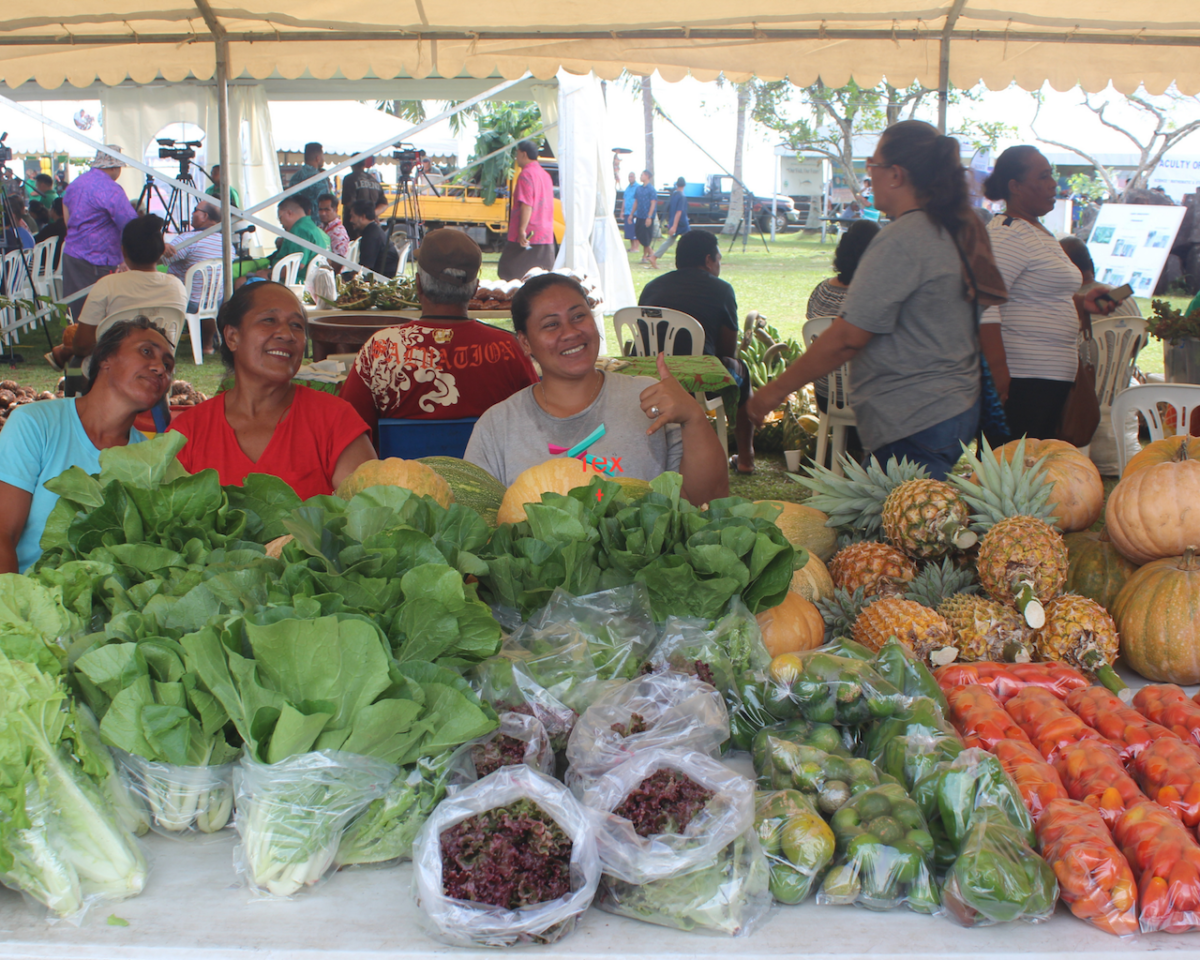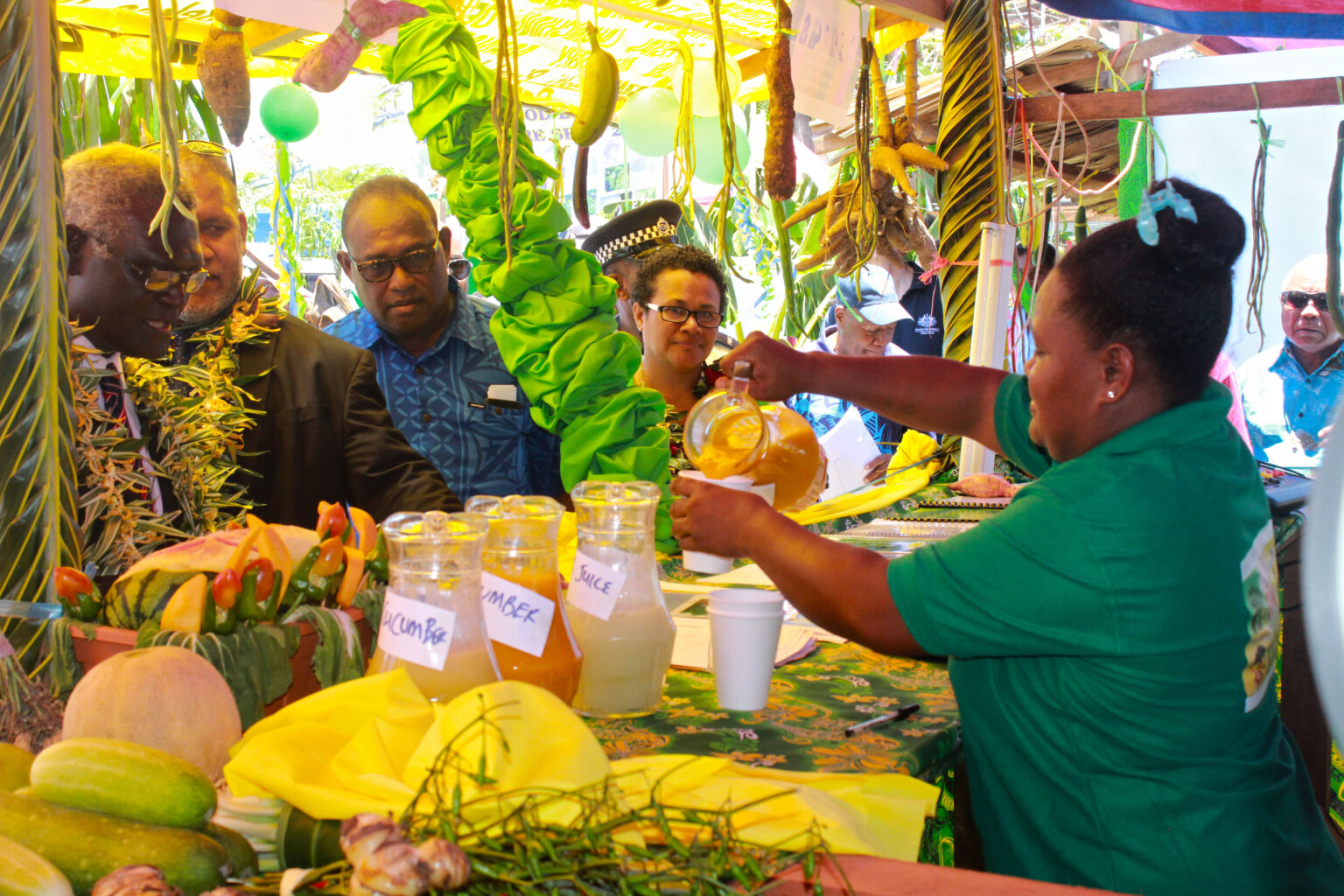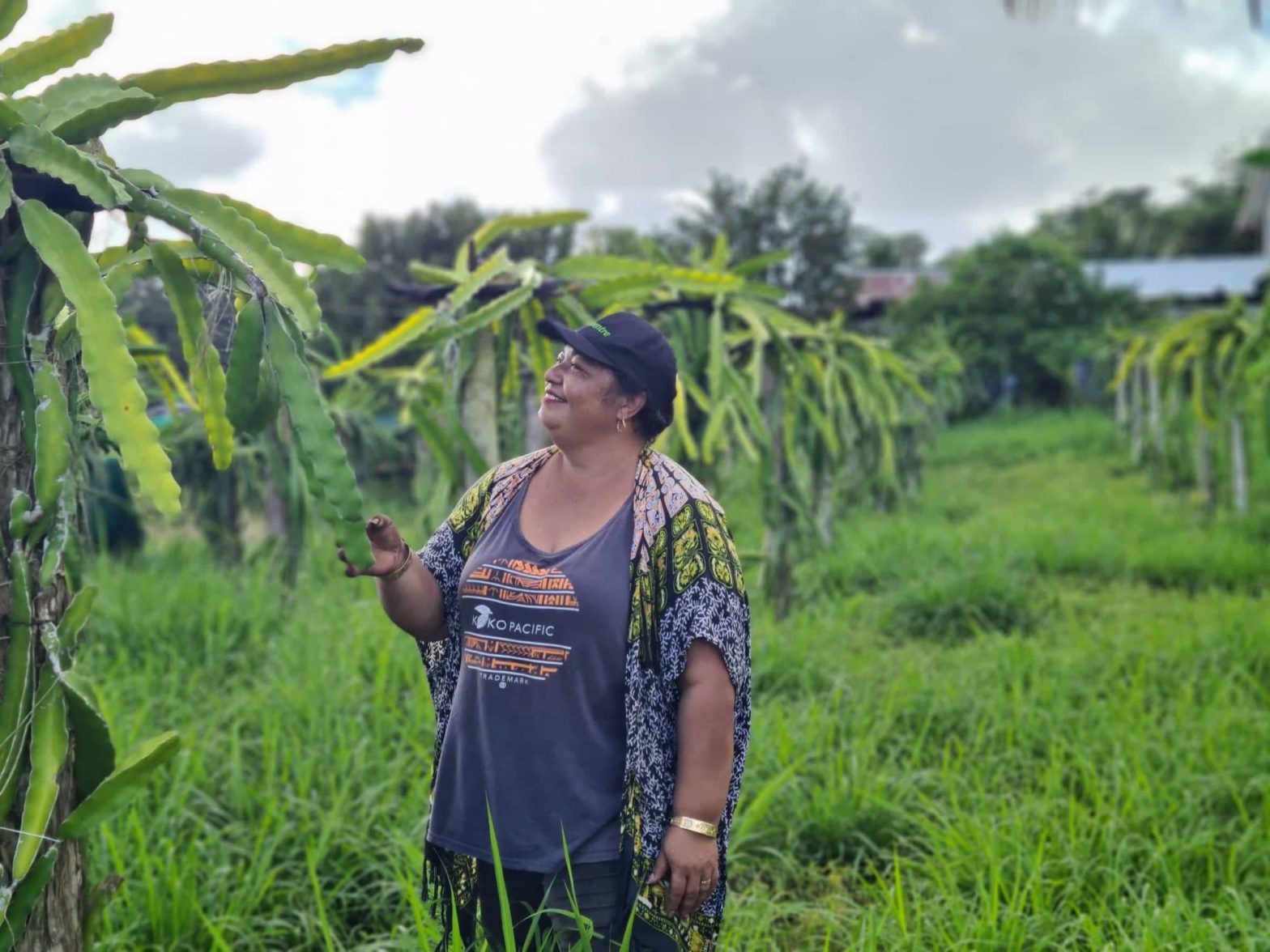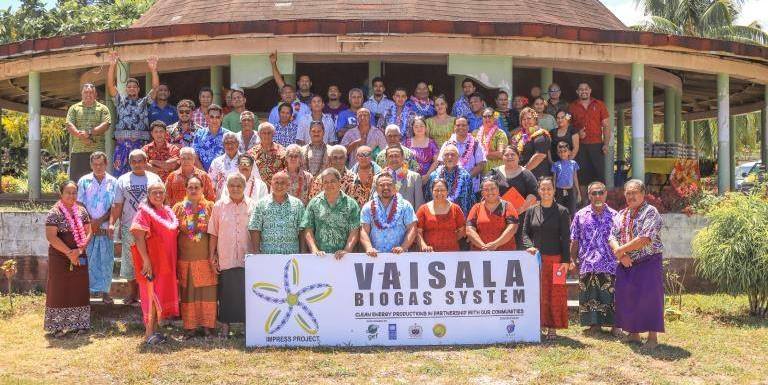WFD action-oriented campaign calls for global solidarity to take action and sensitise the public on how everybody has a role to play in transforming agri-food systems
Excitement is building as the Government strengthens its partnership with international development partners, the private sector and civil society to celebrate World Food Day (WFD) 2021.
Although the global celebrations, spearheaded by the Food and Agriculture Organisation of the United Nations (FAO) normally falls on 16 October 2021, the local celebration led by the Ministry of Agriculture and Fisheries (MAF), has been rescheduled for 2 pm Friday 22 October 2021 at the Samoa Tourism Authority (STA) Cultural Village.
Prime Minister Fiame Naomi Mata’afa will deliver the keynote address. As part of the celebrations, a key document called the Samoa Food Systems Pathway 2030 will be launched as well as a new variety of taro for export.
“Every year the Ministry of Agriculture and Fisheries Celebrates World Food Day (WFD) during the Agriculture Show which is now scheduled to be held next year,” said the Chief Executive Officer of MAF, Tilafono David Hunter.
“This year the WFD and International Year of Fruits and Vegetables (IYFV) is ever so important because we can reflect on how far we have come as a country during this pandemic. During this WFD & IYFV celebrations, the Ministry highlights the hard work of our farmers, fishers, food processors and exporters as they are the ones who continue to work hard to keep Samoa food secure.”
Tilafono noted the collaboration between co-organisers, the Government and FAO’s Subregional Office with Samoa Women’s Association of Growers (SWAG), Samoa Hotels Association (SHA), British High Commission, and other key stakeholders in the food and agriculture sector. All the partners are united on the need to promote a healthier and more prosperous Samoa.
“While we have attained sufficient food in quantity, we still have a long way to go before we achieve nutrition security,” Tilafono said.
“The Government of Samoa’s National Non-communicable Disease Control Policy 2018 – 2023 notes that 84.7 percent (ages 24 – 65) of Samoans are overweight, with 63.1 percent (ages 24 – 65) being obese. We need to take action together to tackle the nutrition insecurity that faces our country.”
The celebration comes amidst the challenges posed by the COVID-19 pandemic, which has disrupted agri-food systems and increased food insecurity and inequality the world over.
But the theme for this year, “Our Actions, our Future: Better production, better nutrition, a better environment and a better life” is one of hope and is designed to encourage people to rise above the challenge and look at what is possible given the circumstances.
“The Pacific Islands, including Samoa, are faced with many unique challenges when it comes to food and nutrition security,” said Xiangjun Yao, FAO Coordinator of the Subregional Office for the Pacific Islands, based in Samoa.
“We want to ensure our Pacific countries make their celebrations relevant to the local situation on the ground. FAO has been providing support to our member countries to celebrate this very important day. We care about the support to the Governments to celebrate the day, but also our technical cooperation to tackle the institutional policy and technical bottlenecks that impede the countries achieving food and nutrition security relevant SDG Goals. In this course, we are proud about the partnership and the potential with international and regional development partners and CSOs and the private sector in countries.
The celebration next week will focus on healthy eating to target the growing problem of non-communicable diseases, which is a monumental challenge for Samoa. There will also be a focus on organic farming and encouraging the consumption of healthy food that is grown and found locally.
“We are the answer! Samoa is blessed with a bounty of healthy and nutritious dietary options,” said Shelley Burich, of SWAG. “We have many local growers, farmers, and fisherpeople who rely on the resources around us.
“COVID has shown us how dependence on imported food creates unnecessary vulnerabilities. Samoa also has major issues with NCDs and Obesity. Studies have shown that there is a clear link between foods that are imported as well as certain pesticides contributing to obesity. With Government support, NGO engagement, and Private sector commitment we can help our nation to embrace local organic fare over less nutritious imported foods.”
Charlotte Brunt, of SHA, agrees and notes her organisation’s strong support for the cause. She is encouraging public engagement and participation, noting that the messages and lessons from Friday should not stop with WFD but should become daily habits.
On the global scale, this year’s WFD action-oriented campaign focuses on raising awareness of the need to support the transformation to more efficient, inclusive, resilient and sustainable agri-food systems for better production, better nutrition, a better environment, and a better life, leaving no one behind.
The campaign calls for global solidarity to take action and sensitise the public on how everybody has a role to play in transforming our agri-food systems by changing the way we produce, transform, consume and waste our food.
FAO celebrates World Food Day each year on 16 October to commemorate the founding of the Organisation in 1945 and raise awareness about its mandate to ensure everyone everywhere has access to enough safe, diverse and nutritious food.
This feature was produced by The Food and Agriculture Organization of the United Nations (FAO) on 19 October 2021, reposted via PACNEWS.




